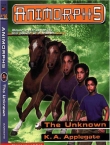
Текст книги "Burning Paradise"
Автор книги: Robert Charles Wilson
сообщить о нарушении
Текущая страница: 5 (всего у книги 20 страниц)
“Cassie, listen to me… what about Thomas?”
She looked around guiltily. Her brother was standing back by the car. Not close enough to see the man’s injury in any detail, but close enough that he must have witnessed the shooting. (The killing, she corrected herself: that’s what it would be if they abandoned the man here.) But yes, it was true, if the police came, if they were arrested, who would look after Thomas? How could she protect him?
The man on the ground took a gurgling breath and fell silent. His hands ceased moving and his eyes looked at blankly at the sky. Cassie registered the sudden slackness of his body. Her head filled with the sound of the wind in the leafless trees.
“Is he dead?” Beth asked.
Cassie felt for a pulse again, pointlessly. She stood up and backed away.
“We have to hide him,” Leo said. “He’ll be found sooner or later. Better for us if it’s later.”
“Hide him?” Beth asked.
Leo nodded at a place where the plastic safety barrier had been bent to the ground by weather or reckless tourists. “Help me,” he said. “Beth?”
Beth swallowed hard but nodded.
Cassie watched in disbelief as they took the man’s arms and began to drag him toward the slope. The man’s shoes left an irregular trail of blood. Cassie scuffed gravel over the pond of blood where the man had been shot, concealing the evidence. Soon her own shoes were spattered with blood. Were they forgetting something?
“His hat,” she said.
Beth came back for the man’s hat and tossed it toward the distant valley. It sailed on the wind and then dropped out of sight.
“Now roll him down,” Leo said.
“We should go through his pockets first.”
Cassie turned away. She couldn’t bear to watch Leo turning the corpse on its side so Beth could extract the dead man’s wallet. She walked back to the car, to Thomas, trying not to hear the sound (though she could hardly ignore it) of the man’s body tumbling downhill through clumps of wild sumac and brittle brown grass. The noise dwindled and finally stopped. Somewhere in the woods a crow called out.
Later—after dark, the road unwinding under a shimmer of stars—Beth summoned the courage to look at what she had taken from the dead man’s pockets and stuck into her purse: A leather billfold. A couple of hundred dollars in cash. And a prescription bottle of a drug called Bisoprolol. “It’s a heart drug,” Leo said. “He must have had a condition.”
Leo dumped the billfold and the pills (all identifying labels removed) into a trash bin outside a post office in a nameless little town where all the stores were closed for the night. Later, at a twenty-four-hour gas station convenience shop off the Interstate, Beth used some of the dead man’s cash to buy a selection of fresh and dry food, which she secured in the trunk of Leo’s car.
Cassie sat in the backseat with Thomas as they drove on. During the night Thomas asked her whether the man with big glasses was really dead. “Yes,” she told him. No point in lying. Thomas could be protected from many things, but not from this obvious truth.
Since then her brother hadn’t said a word. He sat slumped with his head against Cassie’s shoulder, eyes closed, not asleep but not entirely awake, hiding in his own somnolent body as the car rolled on. He was the only innocent one among them, Cassie thought. She hadn’t been able to protect him from what they had done. But at least she had kept his hands clean.
8
 RURAL VERMONT
RURAL VERMONT
OF ALL THE NIGHTMARISH EVENTS OF THE last three days, Nerissa thought, this had to be the most grotesquely surreal: descending step by step into the cellar of her ex-husband’s farm house, where something both more and less than human was waiting to be interrogated.
She was physically and emotionally exhausted. Coming home to find Cassie and Thomas missing from the apartment had revived every fear she had so carefully repressed since the slaughter of ’07. During the drive from Buffalo she had been reluctant even to stop for gas, and when she did eventually stop she found herself wondering whether the station attendant (some acned teenager) was one of them. It was the kind of reflexive paranoia that might have protected Thomas and Cassie, had she practiced it consistently. But after seven quiet years she had relaxed her vigilance. A night out, she had thought, was a small thing to ask. A well-earned reward, in fact, after everything she had done (and done without complaint) for her sister’s children. She deserved it, no?
The empty apartment, the packed bag absent from its place under Cassie’s bed, the ransacked kitchen: that was her answer.
But she would find Cassie and Thomas, she promised herself. She would protect them. Bring them home. And to hell with Werner Beck and the Correspondence Society’s rules of conduct. The Correspondence Society was dead. The only thing left was family. The only thing that mattered.
Ethan walked ahead of her down the wooden stairs. He was still talking about the sim, how it couldn’t be trusted, but his words were only an ambient buzz. Nerissa didn’t care. She just wanted to see the monster. To force some kind of truth from its stupid, lying mouth.
Of course she knew Ethan was right: the simulacrum—that is to say, the hypercolony of which it was a part—couldn’t be trusted. It wasn’t a human being. It wasn’t even an animal. Ethan and Werner Beck had proved that.
Ethan had told Nerissa about the Society shortly after they were engaged to be married. He had confessed his membership as if it were an embarrassing truth she needed to know about him, like a minor case of herpes. At first she had thought of the Society as something trivial—Masonry for mathematicians, an academic boys’ club with the pretense of a conspiracy as its binding secret. The ideas he had blushingly put forward seemed hardly credible. The radio-reflective layer (itself only an engineer’s abstraction as far as Nerissa was concerned) as a living thing? Exercising subtle control over human history? Even if she had wanted to believe it, how could she?
She hadn’t taken it at all seriously until he escorted her to his lab and showed her his cell cultures. He had been working with samples recovered from Antarctic ice cores, ostensibly studying airborne pollen deposited by ancient snowfalls. (All Society research needed a legitimizing pretext, he said. Research that cut too close to certain subjects had a way of losing funding or getting derailed during peer review. Careers had been devastated, back in the days before Society members learned to be discreet. But the names he cited were only vaguely familiar to her: who was Alan Turing, for instance?) The pollen was present in the ice cores, and Ethan had dutifully categorized the samples by species, teasing out the implications for the ecology of pollinating insects; his findings had eventually appeared in Ecological Entomology. What he didn’t report were the tiny granules he had also isolated from the ice: microscopic spherules of what appeared to be carbonaceous chondrite, enclosing traces amounts of complex organic matter.
The spherules were few in absolute number and easily overlooked, hardly distinguishable from dust, but consistently present in a thousand years of deposited ice. The Society’s hypothesis was that they had sifted down through the atmosphere from the radio-reflective layer, the radiosphere—that the radiosphere itself was an orbital cloud of trillions of such granules, evenly distributed around the Earth. The cloud was too diffuse to block more than a fraction of incoming sunlight or to detect with the naked eye, but the distributed mass of it, Ethan had calculated, must be immense.
Without its enclosing membrane of rock, the fraction of organic matter preserved in the spherules decayed on exposure to air. But Ethan had been able to accumulate measurable amounts of it in chambers bathed in inert gases and maintained at temperatures and radiation levels commensurate with the vacuum of space. Add a few molecules of carbon and ice, and the substance would bind to them. Give it a sufficient substrate of raw material and it self-assembled new rocky granules, and the new granules revealed more complexity than the degraded ones isolated from the ice cores: complex crystallizations, venous lacings of carbon and silicon…
By the time of their marriage—an unspectacular civil ceremony followed by a catered dinner at a country-club function room—Ethan had shared samples of his cultures with Werner Beck and with a few of what he called “the digital computation people” for further study. And although Nerissa tried to wall herself off from the implications of her husband’s work, she had to admit it was a momentous and disturbing idea—that some ancient and actually cosmic force was screwing around with human communications. But what did that really mean, in practical terms? If the relative prosperity and tranquility of the twentieth century was a product of that intervention (which the Society had long believed), was it sensible to inquire too closely? Humanity’s earlier track record was hardly inspiring: endless cycles of war, famine, superstition, pestilence…
But these ideas were remote and conjectural and ultimately easy to set aside. Nerissa had managed to go about the business of her life—her teaching position at UMass, a book in progress, her newly-minted marriage—without giving more than a moment’s occasional thought to the nature of the fucking radiosphere.
It had seemed like a reasonable accommodation, in the years before the bloodshed began.
Ethan told her the monster in his cellar called itself Winston Bayliss. Nerissa wondered how it had come by the name. Had there been a real Winston Bayliss, perhaps killed and replaced by the sim? Or had the monster invented its name out of a statistical analysis of human nomenclature?
No way of knowing. And it didn’t matter.
The monster wore a pair of white briefs, its pale belly drooping over the elastic waistband. Its torso, arms and legs were duct-taped to a heavy wooden chair, effectively immobilizing it. The monster lifted its head as she approached. It wore the bland face of a middle-aged white male, not unhealthy but soft around the edges. Of course, its appearance meant nothing. The weary expression on its face meant nothing. Its beseeching eyes meant nothing. The creature’s body was simply a display surface, a signaling mechanism. In a human being the look it gave her might have meant, I’ve been through a lot. I’m all tired out. But from the monster all it signified was an attempt to arouse and exploit her sympathy.
Promptly—as if the monster had read her mind, though really it was just interpreting her body language—the pudgy face turned smooth and indifferent. As if to say: You know what I am, and I won’t try to fool you. And that was also a lie, albeit a subtler one.
Or not even a lie. If Ethan and Werner Beck were right, the monster operated by hive logic. Its verbalizations were neither knowingly true nor knowingly false. Ethan had explained this to her long ago: Hive insects—ants, for instance—operated according to a few simple rules, written on their genetics by evolution over the course of millions of years. They did amazing things: built cities in the soil, scavenged for food with startling efficiency. But no ant ever “decided” to do any of these things. Ants didn’t plot strategy, and there was no board of directors in the hive. There was no conscious mind at work—there was no mind at all, only chemistry and environmental triggers. A cascade of such interactions produced complex behavior. But only the behavior was complex. The rules themselves, and the beings that enacted them, were relatively simple.
It was the same way with the hypercolony. It was a sort of nest or hive that had enveloped the entire planet. Its smallest component parts were the spherules of rock and organic matter Ethan had learned to cultivate. As small as they were, the spherules were capable of generating and receiving impulses over a broad band of radio frequencies. They were also capable, Ethan said, of performing enormously elaborate calculations. (Correspondence Society people talked about “binary code” and “quantum-scale computation,” but Nerissa understood none of that; the only computers she had ever dealt with were the ponderous card-reading machines the utility companies used to generate her monthly bills; she took Ethan’s claim at face value.)
The spherules weren’t, in any plausible sense, individually intelligent. Like ants, they followed rules but didn’t write them. Like ants, they exchanged signals and responded in programmed ways to environmental cues. What made the hypercolony remarkable was its collective power to manipulate electronic signals and mimic human beings. Mindless as it was, it could somehow generate a sim like Winston Bayliss and pass it off as human. But when Bayliss said the word “I,” it was a noise that meant nothing. There was no “I” inside the monster. There was no one home. There was only the operation of a relentless, empty arithmetic.
She took a step closer to the chair. She could see where Ethan had shot the monster in the leg. He had bandaged the wound, either to keep the mess off the floor or to keep the creature from dying of blood loss. The bandage, improvised from a hand towel and a strip of duct tape, leaked viscous beads of red and green matter. The rotting-hay smell of it hovered cloyingly in the still air of the cellar.
She realized she was avoiding eye contact with the thing. That was cowardly, and the simulacrum would probably sense her fear and try to manipulate it. She refused to offer it even that slender advantage. She steeled herself and stared it in the face. Its eyes were brown and moist, its eyelashes almost femininely long. It returned her gaze unblinkingly. “Hello, Mrs. Iverson,” it said.
She was shocked despite her expectations. She swallowed her nausea and said, “How do you know me?” Not because she expected a truthful answer but because she wanted to hear what the monster would say.
“The hypercolony knows you. I share some of that knowledge.”
Its voice was a mild, reedy tenor. In itself, that wasn’t surprising. The parts of the monster that produced speech were all authentically human—throat, lungs, vocal cords.
“You are the hypercolony, isn’t that correct?”
“I understand why you believe that, but no. That’s what I came here to explain.”
She shrugged. “Say what you want to say.” Ethan stood beside her with the pistol in his hand. The simulacrum licked its lips.
“Most of what the Correspondence Society deduced about the hypercolony is true. It’s a living thing. Its origins are ancient and incompletely remembered, but it has spread over vast distances, star to star. Its cycle of life is very long. It identifies and engulfs biologically active planets on which tool-making cultures might emerge. If such a culture does emerge, the hypercolony then exploits it for its own ends. Under ideal circumstances the relationship is beneficial to both parties.”
“Is it?”
“Once such a culture begins to generate electronic communication, the hypercolony intervenes to foster certain outcomes. Peace as opposed to war, for example. In that way the relationship becomes fully symbiotic. The adopted species is freed from the consequences of its own bellicosity, while prosperity becomes generalized and formerly hostile tribes or nations grow mutually interdependent. Useful technologies then arise naturally and efficiently, and the hypercolony exploits these technologies.”
“Exploits them for what purpose?”
“Reproducing itself,” the monster said.
Symbiosis, she thought. In this context, the word was an obscenity. She had seen how that alleged mutual benefit actually worked.
It was Nerissa who had discovered the bodies of her sister and brother-in-law back in the autumn of ’07. She remembered the front door of their small Forest Park home standing ajar. She remembered the bullet holes in the floral living-room wallpaper Evelyn had loved (and Nerissa had hated: they had conducted countless amiable arguments over it). She remembered the sour, coppery smell of blood, thick enough to taste, and she remembered the blood spattered on her sister’s collection of Hummel figurines, the porcelain milk maids and shepherd boys smiling through crimson masks.
Evelyn, whom Nerissa had always called Evie, had been shot twice through the torso and once through the head. She hadn’t had time to get up from the sofa. Her husband Bob lay on the floor a few feet in front of her. He had also been shot through the body and had received a final killing shot to the head. Both their faces had been unspeakably distorted by their wounds.
It was a Wednesday afternoon, just past four o’clock. Nerissa had been trying to get in touch with her younger sister since noon and had finally decided to drive to Forest Park in hopes of catching her at home. She wanted to tell Evie about the disturbing telephone call she had received from Ethan, about a wave of killings running through the Correspondence Society, a wild claim but one which the TV news seemed to confirm. Bob Stoddart, Nerissa’s brother-in-law, was a longtime Society member and a friend of Ethan’s. It was Ethan and Nerissa who had introduced Bob to Evie. As she averted her eyes from their bodies Nerissa found her thoughts drifting back to the time some fifteen years earlier when she had been engaged to Ethan and Evie had been dating Bob… how she and Evie had laughed about these unlikely beaus they had somehow acquired, an entomologist and a mathematician (of all things), smart and funny but so often helpless about clothes or manners. Evie could no longer laugh, however, because a bullet had passed through her upper lip on its way through her skull. So Nerissa willed her attention back to the Hummel figurines, piebald with blood. She knew she ought to call the police, and she tried to focus on that task. She would call them from the kitchen telephone, she decided, because the phone on the end table next to the sofa, although it was closer, was clotted with Evie’s brain matter. She would do that as soon as she could get her legs to work properly. Until then she leaned against the wall and gazed at Evie’s Hummels. Evie had worked in advertising, and something about these figurines had appealed to her, not in spite of but because of their kitschiness: the Merry Wanderer, now lapped by a lake of blood; the Apple Tree Boy, the same color as his apples…
She almost screamed when she heard footsteps at the door. They’ve come back, was her first panicked thought. But no. It wasn’t the killers. A small voice called out, “Hello?”
Cassie.
Oh, God. Cassie.
Nerissa found her legs and turned. Of course, Cassie had come home. And Thomas… Thomas must be upstairs in his crib, must have slept through the murders or fallen asleep after the gunshots, or was he (no, this was unthinkable) also dead? But Cassie at twelve was old enough to walk the several blocks from Forest Park Elementary by herself. Cassie was an orphan but didn’t know it yet. And she must not be allowed to find out, not this way, not by discovering her parents lying in the antic postures of their awful deaths. Hurry, Nerissa thought, keep her away, push her out the door if necessary—but the girl had already come too far. She was standing in the tiled hall just outside the living room. She had dropped her book bag on the floor. She squinted into the darkened room as if it had filled with a searing light. Her mouth hung open, anticipating a scream that somehow never began.
It had taken all of Nerissa’s strength to pull the girl away, to kneel and to turn Cassie’s head against her own shoulder, to accept the weight of her tears.
That’s your fucking symbiosis, she thought, staring at the human-shaped thing in Ethan’s cellar.
“Why are you admitting this?”
“I’m not admitting anything,” the monster said. “I’m not the entity that committed the murders of 2007, if that’s what you’re thinking. Mrs. Iverson, when you look at the night sky, does it seem lifeless to you? It isn’t. Every star is an oasis in a desert—a warm place, rich with nutrients and complex chemistry. Many organisms compete for access to those riches. Their struggles are ethereal, protracted, and largely invisible to beings such as yourself. But the battles are as relentless and deadly as anything that happens in a forest or under the sea.”
“Even if that’s true, so what?”
The simulacrum glanced at Ethan, who was shifting his feet impatiently. “The organism of which I am a part has infected the hypercolony and taken control of its reproductive mechanisms.”
“What, like a virus or some kind of parasite?”
“Approximately. But the process isn’t finished. The hypercolony is still trying to reclaim itself. A struggle is underway.”
“We’re wasting time,” Ethan said.
Nerissa was inclined to agree. All this cosmic Manichaeism wasn’t getting them anywhere. “You said something about my niece, is that correct?”
“Before long the outcome of the struggle will be decided. One side would like to exploit what remains of the Correspondence Society as a weapon against the other. Your niece is being manipulated. And she’s not the only one.”
Nerissa leaned toward the sim and let her hatred show. “What, specifically, do you know about Cassie?”
“I can help you protect her.”
“If you have anything to say—” Nerissa felt Ethan’s hand on her shoulder. “What? And what’s that god-awful noise?”
“The alarm,” Ethan said. “Someone’s on the property.”
“Cut me loose,” the monster said.
Ethan told the monster to go to hell. But he didn’t kill it, Nerissa noticed. He kept his pistol at his side and hurried up the stairs.








